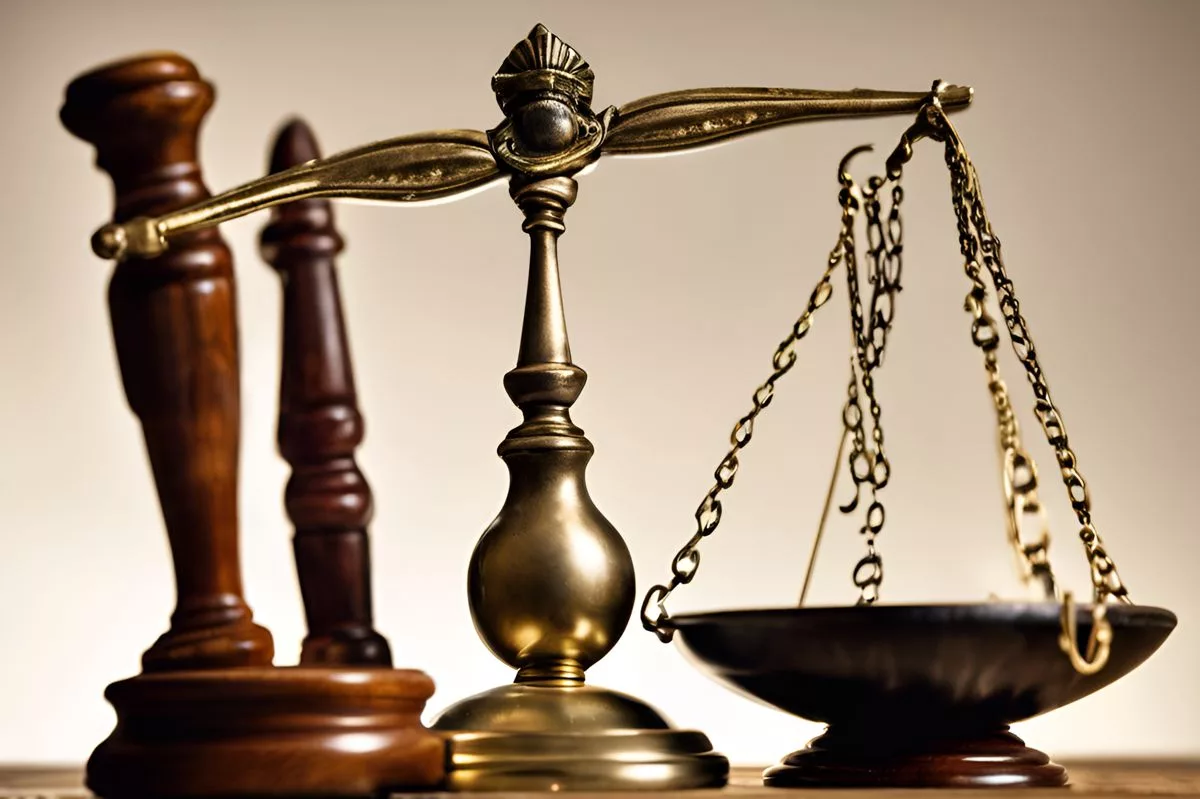South African group AfriForum has taken legal action opposing the appointment of deposed judge John Hlophe to the Judicial Service Commission (JSC), arguing that it breaches the National Assembly’s constitutional duty and risks the judiciary’s reputation and independence. Hlophe was found guilty of serious judicial misconduct in 2021 and dismissed by President Cyril Ramaphosa. AfriForum’s CEO Kallie Kriel stated that it was “inconceivable” that someone previously regarded as unfit to serve as a judge could evaluate the morals and competence of prospective judges.
What is the controversy surrounding John Hlophe’s assignment to the Judicial Service Commission?
AfriForum has approached the Constitutional Court in opposition to John Hlophe’s appointment to the Judicial Service Commission, citing his previous removal for serious judicial misconduct. Hlophe’s involvement in the JSC has caused a substantial credibility challenge, and AfriForum argues that his appointment breaches the National Assembly’s constitutional duty. The legal struggle against Hlophe’s appointment is of utmost importance, as the judiciary’s reputation and independence are at risk.
AfriForum’s Legal Action
In a ground-breaking development, the South African civic body AfriForum has audaciously approached the Constitutional Court in opposition to the recent selection by the National Assembly of the deposed judge, John Hlophe, to the Judicial Service Commission (JSC). This appointment to the JSC occurred on 9 July, with Hlophe being elected alongside eminent personalities such as Julius Malema of the Economic Freedom Fighters (EFF), Glynnis Breytenbach of the Democratic Alliance (DA), Soviet Lekganyane and Fasiha Hassan of the African National Congress (ANC), and Athol Trollip of ActionSA.
Now, Hlophe finds himself at the vortex of an escalating controversy. The JSC, an integral body tasked with interviewing judges and supervising their behaviour, is now faced with a substantial credibility challenge due to Hlophe’s involvement.
AfriForum’s central argument revolves around the assertion that Hlophe’s appointment is illogical, illegal, and breaches the National Assembly’s constitutional duty. The body has already submitted its court documents electronically to the Speaker of Parliament, Hlophe himself, and the MK party. A request for immediate access to the Constitutional Court is slated to be filed in the following week.
AfriForum’s CEO Speaks Up
Kallie Kriel, CEO of AfriForum, raised the disquieting contradiction that overshadows Hlophe’s appointment. Hlophe, previously regarded as unfit for serving as a judge by the JSC due to claims of dishonesty and serious misconduct, now has the authority to evaluate the morals and competence of prospective judges. “It’s inconceivable,” stated Kriel, voicing a sentiment probably echoed by many within and outside the legal community.
Kriel stated that the legal struggle against Hlophe’s appointment by AfriForum is of utmost importance due to the possible risk it presents to the judiciary’s reputation and independence, and consequently, the rule of law. As per the Constitution, the National Assembly is obliged to preserve the autonomy, objectivity, respectability and efficiency of the courts. Kriel contends that by appointing Hlophe, the National Assembly has not only evaded its constitutional obligation, but has also acted in stark violation of the Constitution.
The argument further extends into the realm of the Constitutional Court. AfriForum insists that due to the urgency of this case and the Apex Court’s exclusive jurisdiction over it, it can be introduced directly to the Constitutional Court.
The Roots of the Dispute
The origins of this disagreement are found in the past. In 2021, the JSC pronounced Hlophe guilty of serious judicial misconduct following accusations of his attempts to sway impending corruption case verdicts related to former president Jacob Zuma in 2008. Consequently, President Cyril Ramaphosa dismissed Hlophe in March of this year, following a vote of 305 in favour compared to 27 against. The dismissal was objected by the DA, Freedom Front Plus (FF Plus), and African Christian Democratic Party (ACDP), who used the impeachment as a ground to oppose Hlophe’s nomination to the JSC.
Evidently, the consequences of Hlophe’s impeachment continue to resonate throughout the South African judicial scene. The placement of a deposed judge on the JSC has caused a substantial divide. The integrity of the judiciary, an essential aspect for a functioning democracy, lies at the core of this controversy. As this controversy unfolds, it’s hoped that the principles of justice and fairness will guide the resolution of this situation.
-
Why has AfriForum taken legal action opposing John Hlophe’s appointment to the Judicial Service Commission?
AfriForum argues that Hlophe’s appointment breaches the National Assembly’s constitutional duty and risks the judiciary’s reputation and independence. They cite his previous removal for serious judicial misconduct as evidence that he is unfit for the position. -
What is the Judicial Service Commission?
The Judicial Service Commission is a body tasked with interviewing judges and supervising their behavior in South Africa. -
What is the controversy surrounding John Hlophe’s involvement in the Judicial Service Commission?
Hlophe’s appointment to the JSC has caused a substantial credibility challenge, and AfriForum argues that his appointment breaches the National Assembly’s constitutional duty. This is due to his previous removal for serious judicial misconduct. -
Who is Kallie Kriel, and what is his stance on John Hlophe’s appointment?
Kallie Kriel is the CEO of AfriForum and has spoken out against Hlophe’s appointment, stating that it is inconceivable that someone previously deemed unfit to serve as a judge could evaluate the morals and competence of prospective judges. He contends that the legal struggle against Hlophe’s appointment is of utmost importance due to the possible risk it presents to the judiciary’s reputation and independence. -
Why was John Hlophe dismissed by President Cyril Ramaphosa?
Hlophe was found guilty of serious judicial misconduct in 2021 following accusations of his attempts to sway impending corruption case verdicts related to former president Jacob Zuma in 2008. He was dismissed in March of this year. -
Who has opposed John Hlophe’s nomination to the Judicial Service Commission?
Opposition to Hlophe’s nomination has come from the DA, Freedom Front Plus, and African Christian Democratic Party, who used his impeachment as grounds to oppose his nomination.












